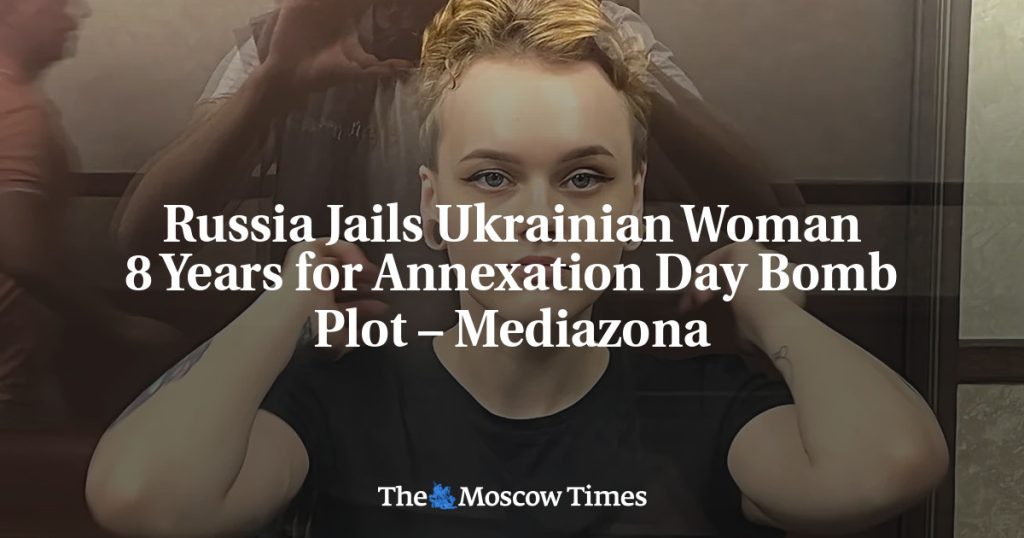A 26-year-old Ukrainian woman, Irina Navalnaya, was sentenced to eight years in prison by a Russian court for allegedly plotting an explosion on the day that Russia claimed to have annexed four Ukrainian regions. She was accused of attempting terrorism and illegal storage of explosives in Mariupol in September 2022. Navalnaya was detained by occupying authorities and accused of conspiring with Ukrainian special services to detonate a device at the Russian-installed administration building during a disputed referendum to annex Ukrainian territories amid the invasion.
Despite being evacuated during the spring siege of Mariupol, Navalnaya returned in August 2022 and was later accused of being tortured by police into falsely incriminating herself. Her mother claimed Ukrainian authorities have declared her a prisoner of war. The Southern Military District Court in Rostov-on-Don found her guilty and sentenced her to eight years in a general-security penal colony. Prosecutors initially requested a 14-year sentence and a fine of 400,000 rubles, but the court reduced the sentence and did not impose the fine.
Navalnaya’s lawyer, Ivan Bondarenko, stated that the prosecution’s case fell apart when one of the witnesses recanted their testimony against her. This led to the undermining of the other two witnesses’ credibility. Bondarenko argued for Navalnaya’s acquittal and expressed intentions to appeal her sentence. Despite acknowledging that the eight-year sentence was lenient given the circumstances, he believed the court was unable to completely exonerate her.
It is important to note that Irina Navalnaya is not related to the late Kremlin critic Alexei Navalny, who had distant relatives in northern Ukraine. Navalnaya’s case highlights the ongoing tensions between Russia and Ukraine, with accusations of torture and false incrimination being raised. The sentencing of Navalnaya to eight years in prison for her alleged role in a terror plot underscores the severity of consequences individuals face in the midst of geopolitical conflicts and power struggles.
The disputed referendum and annexation of Ukrainian territories by Russia have been met with international condemnation and accusations of violating international law. Navalnaya’s case adds another layer to the complex political and legal dynamics at play in the region. The court’s decision to reduce her sentence and dismiss the fine suggests potential inconsistencies or weaknesses in the prosecution’s case, raising questions about the fairness and impartiality of the judicial process in such politically charged cases.
As Navalnaya’s lawyer plans to appeal the verdict, the case is likely to continue attracting attention and scrutiny from human rights organizations, legal experts, and diplomatic channels. The sentencing of Navalnaya serves as a reminder of the broader implications of political conflicts on individual rights and due process. The case underscores the need for transparency, accountability, and respect for the rule of law in addressing sensitive and contentious issues involving national security, terrorism, and civil liberties.


